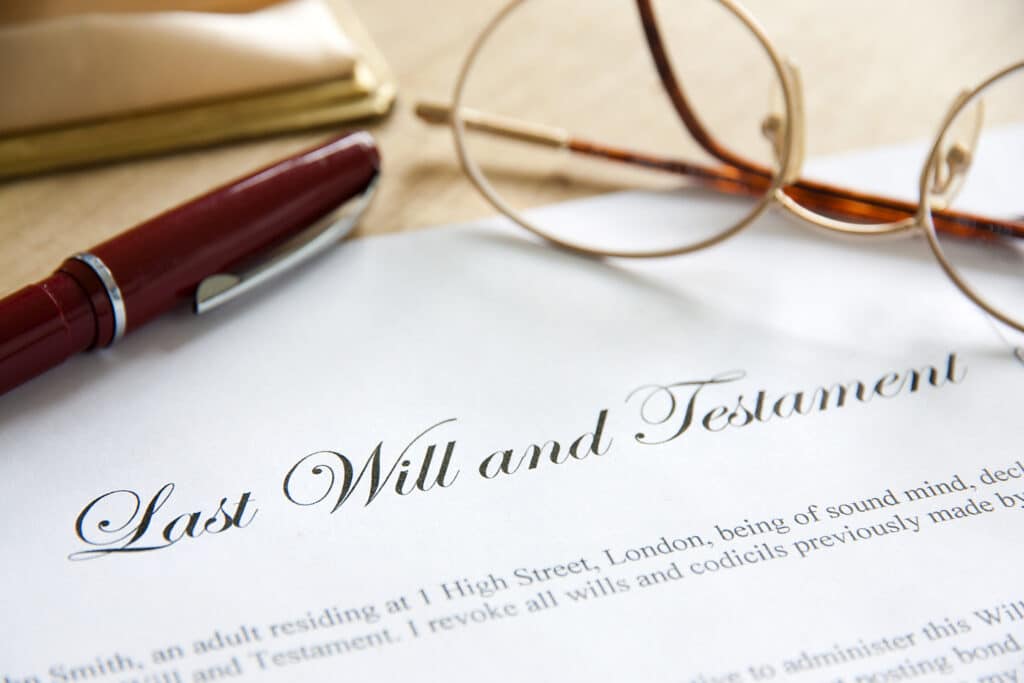
The Requirements of Writing (Scotland) Act 1995 (the 1995 Act) changed the way a testator signs a Will in Scotland. The testator is the person who makes the Will. if the testator does not properly sign a Will, the estate can become intestate. That means rather than the testator’s wishes being followed, the estate will be distributed in accordance with the Succession (Scotland) Act 2016. That might not reflect the wishes of the testator.
In Scotland, how do you sign a Will?
Today, when you make a Scottish Will:
- The testator must sign on every page;
- The testator and a witness must sign on the last page;
- You must date and include the place of signing.
The Will may be declared invalid if you do not follow these rules.
Why should a Will be signed on every page?
Signing a Will on every page prevents the substitution of pages after the testator has signed the Will. Prior to the 1995 Act, someone could remove an unsigned page and replace it with another page containing different intentions.
Are there any signing issues with homemade and English Wills?
You should be very wary of making a homemade Will. Many homemade Wills packs are based on English law. You do not need to sign an English Will on every page. It must be signed at the end of the document. Two witnesses should also sign beside the testator’s signature. Sometimes, this confused those who make homemade Wills.
What happens if a Will has only been signed on the last page?
It may not be fatal if a Scottish Will is only signed on the last page or the signing is defective in some other way. It is possible to cure some signing defects. However, you will need to apply to court and ask a sheriff to grant an order that the Will is considered valid. This will cause delay and incur additional expense.
Are there circumstances where a signed Will is not valid?
A Will is valid when a testator follows the rules set out in the 1995 Act. However, sometimes incorrectly signed Wills cannot be rectified.
A sheriff recently decided a Will was not valid in the case of Christopher Knapman and Patrick Wadeson. In this case, Mr Knapman and Mr Wadeson sought to have the Will of the late Jean Dorothy Weatheritt declared valid. The “Will” consisted of three pages stapled together. The first page was the only signed page. It was also witnessed. The sheriff took the view that a Will signed on the first page was clearly not “subscribed” (i.e. signed at the end of the document). The Will could not be declared valid. Since the Will was not declared valid because of that. The estate fell into intestacy. An intestate estate is where there is no Will and the estate must be wound up as directed by the Succession (Scotland) Act 2016. This often conflicts with the testator’s wishes.
It is vitally important to have a valid Will
Having a Will that is valid is vitally important not only for the testator, but also for the beneficiaries of the estate. A properly prepared Will sets out who should share in the estate. The testator can only ensure their wishes are met by making a valid Will.
Next steps when you want to draw up your Will
Our solicitors have may years of experience in preparing Wills for clients. They also advise clients on how to ensure their wishes are followed after their death.
If you want to draw up your Will and express your wishes after your death, please contact Stacey Parker on 01383 629720 or email Stacey at stacey@maloco.co.uk.






